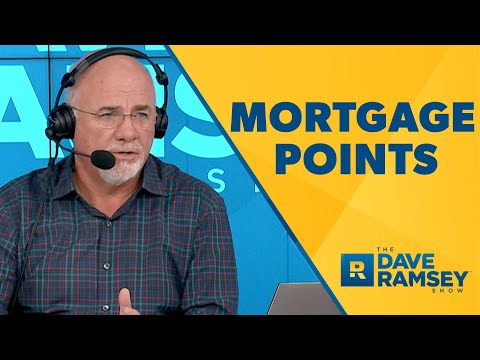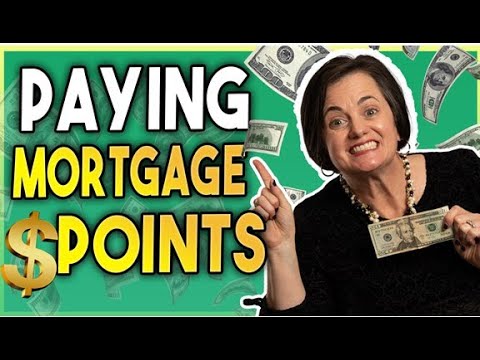Demystifying Mortgage Points: What They Are and How They Work
Let’s cut through the jargon and talk turkey about mortgage points. You’ve likely stumbled across these critters when venturing through the dense forest of home financing. Simply put, there are two types of mortgage points: discount and origination points.
Here’s the skinny on the interest reduction business: buying points might take your rate from, say, 3% down to a cozier 2.25%. On that $100,000 loan, instead of paying $421 each month, you’d be forking over a more digestible $382—music to your ears and wallet!

Analyzing the Value: Are Mortgage Points Right for You?
So, are these points the bee’s knees for everyone? Well, it depends. Picture this: you’ve found the perfect home, and you’re planning to stick around like glue. In this scenario, ponying up for points could be a smooth move. Let it marinate for a second—over time, the savings on your interest could be sizeable.
Here are the nuggets you need to chew on before jumping on the points bandwagon:

| Aspect | Details |
|---|---|
| Definition | Mortgage points, also known as discount points, are fees paid to a lender to reduce the interest rate on a mortgage loan. |
| Cost of One Point | 1% of the loan amount. For example, on a $100,000 loan, one point costs $1,000. |
| Interest Rate Reduction | Typically lowers the interest rate by 0.125% to 0.25% per point. |
| Example Impact | On a $100,000 loan at 3% interest, purchasing three points could lower the rate to 2.25% and reduce the monthly payment from $421 to $382. |
| Tradeoff | More upfront costs at closing in exchange for a lower monthly payment and less paid over time. |
| Ideal for | Borrowers who plan to stay in their home for a long time to recoup the upfront cost through lower monthly payments. |
| Comparison to Origination Fees | Origination fees are charged for processing a loan and do not lower the interest rate, whereas mortgage points do. |
| Payback Period | The length of time it takes to recover the cost of buying points through savings on your mortgage payments. |
| Benefits | |
| Considerations | |
| Lender Credits | An alternative to points, increasing the interest rate in exchange for lower closing costs upfront. |
The Process of Purchasing Mortgage Points
Alright, let’s guide you through this step-by-step, like a waltz, smooth and straightforward:

Mortgage Points Tax Implications: A Fiscal Perspective
Time to chat taxes—yeah, not the most titillating topic, but it’s a must. Mortgage points can dance with your tax deductions:

Mortgage Points Versus Other Rate-Lowering Strategies
When considering how to lower your rate, you’ve got more options than a chameleon has colors:
Always weigh the pros and cons, considering factors like how long you’ll stay in the house and cash flow. Remember that commitment is key—points show their worth over time, so if you’re more of a financial rolling stone, other methods might be your jam.
![What are Mortgage POINTS? [Mortgage Points Explained]](https://www.mortgagerater.com/wp-content/cache/flying-press/bUU8ZoKXC-8-hqdefault.jpg)
Mortgage Points in Action: Real-World Scenarios
Here’s the real tea on mortgage points:
Tools and Calculators: Crunching the Numbers on Mortgage Points
It’s math time—don’t fret, you don’t have to go it alone:
Mortgage Points and Refinancing: What to Consider
Let’s say you’re jazzed about refinancing to snag that oh-so-sweet lower rate. In swoop mortgage points:
Future Predictions: The Evolving Landscape of Mortgage Points
What’s around the bend for mortgage points? Here’s a peek:
Conclusion: Making an Informed Decision on Mortgage Points
We’ve crossed the finish line, and here’s what to take home:
Buckle up and do your homework. Mortgage points could help you score the financial home run you’re aiming for, or they could be an unnecessary expense. Whatever you choose, make sure you’re geared up with all the smarts to hit it out of the park.
Unlocking the Secrets of Mortgage Points
Hey there, homebuyers and number crunchers! Let’s explore the quirkiest side of the mortgage universe and dig into “Mortgage Points,” those financial gems that could make or break your bank account. So strap in and let’s slice that interest rate down to size!
Bingo! What Are Mortgage Points Anyway?
Ever felt like paying your lender for a nice discount on your interest rate was, well, kinda like buying brownie points? Think of Mortgage Points like a game where the prize is saving dough over the life of your loan. You’re basically saying, “Take a bit of my cash now, Mr. Lender, and give me a sweet deal on my interest rate, pretty please?”
But why would someone do that? Ah, just like spotting snow on The beach, it’s not something you see every day, but when the conditions are right, it could be a downright brilliant move!
The Low Down on Buying Down
So you’ve decided to go shopping for points, huh? Just imagine you’re picking up points like you’re drawing Of sad doodles while you’re on hold with customer service – but with a purpose! Each point you snag typically lowers your rate by a quarter to an eighth of a percentage. Might sound teeny-weeny, but it adds up to big-time savings on your Mortgage Payment. Talk about a penny saved being a penny earned!
The Break-Even Boogie
Hold your horses! Before you go all in, you’ve gotta do the break-even boogie. That’s when you shimmy and shake those numbers to figure out when your upfront costs will pay off. Let’s say your monthly payment dropped enough to make a big Boobed black dress look slim – if it’s going to take you more years to break even than you plan to stay in the home, then maybe it’s not your jam.
Point It Out – The Peculiar Perks
What’s really titillating about Mortgage Points is the tax angle. Oh, you heard that right – points can often be deducted on your taxes just like interest! It’s like the IRS is giving you a high-five for being savvy. But double-check with your tax pro – don’t just take my word for it, or you might feel like you’re Cagesideseats at a wrestling match without a clear view of the action.
Point Taken: Long-Term Love or Short-Term Flirtation?
Diving into points is like deciding to wear a Messi inter miami jersey around town – it makes sense if you’re a die-hard fan planning to stick around. But if you’re not in it for the long haul, like wearing the jersey for a one-off match, maybe skip the points. Remember, you’re in it to win it, and by “it, I mean a fabulously low-interest rate over the long saga of your Mortgage Note.
But Wait, There’s More!
Feeling jittery about Mortgage Points? Fret not! There’s always the option to roll ’em into your loan if paying up front feels like a stretch. But keep in mind, that’s a bit like putting whipped cream on a sundae – delicious but costly in the long run. Plus, that nifty points maneuver won’t work if you’re also purchasing Mortgage Insurance. ‘Cause just like mixing stripes with polka dots, some things just don’t mesh.
In the wild world of Mortgage Points, it’s all about playing the long game and keeping your eyes on the prize. Just remember neatniks, crossing your T’s and dotting those I’s can mean the difference between a ho-hum rate and the jackpot of jumbo savings. Go tackle those points like a pro!

How much is 1 point worth in a mortgage?
Well, in the world of mortgages, 1 point typically equals 1% of your loan amount. So if we’re talking numbers, on a $100,000 mortgage, one point would set you back a cool $1,000.
Is it a good idea to buy mortgage points?
Is buying mortgage points a stroke of genius? Maybe – if you’re playing the long game. It’s like betting on the tortoise instead of the hare; you’re paying upfront to save on interest over the marathon of your loan.
How much is 3 points on a mortgage?
So you’re eyeing 3 points, huh? Each point is 1% of your loan amount, meaning 3 points on, let’s say, a $100,000 mortgage would be $3,000. Sure, it’s a chunk of change, but it can trim your interest rate like a fresh haircut.
How do points work on a mortgage?
Points on a mortgage are like the secret sauce to lowering your interest rate. You buy ’em at closing, and they’re your VIP pass to snagging a lower monthly payment.
How much does 2 points lower your mortgage?
Two points can be like a magic spell for your interest rate, possibly knocking it down a good 0.50%. It’s like losing a little weight; you might not see a huge difference at first, but it all adds up!
How much does it cost to buy down 2 points?
Forking over cash to buy down 2 points means you’re looking at 2% of your loan amount. Yes siree, that means for a $200,000-loan, you’d be parting with $4,000 at closing. But hey, it’s for a good cause – your savings!
When not to buy mortgage points?
It’s not always rainbows and butterflies with mortgage points. If you’re more a rolling stone, moving before you can break even, or you just can’t front the cash, then buying points might be like a square peg in a round hole.
Should I buy points on mortgage 2023?
Pondering whether to buy points in 2023? It’s a balancing act. With a crystal ball, we’d all be winners, but since that’s not on the table, crunch the numbers and consider how long you’ll stay put before diving in.
Is it better to pay points or higher interest rate?
It’s the age-old question: to pay points or not to pay points? Paying up front can save you from a higher monthly bill, but it depends on your break-even point. It’s a “pay me now or pay me later” situation.
Should I pay points to lower interest rate?
Dance with the one who brought you, they say. Paying points for a lower rate is like choosing who to bring to the ball; it’s ritzy upfront, but if you stick around long enough, the savings will waltz right in.
Will mortgage rates go down in 2024?
If we could predict mortgage rates for 2024, we’d all be sitting pretty. They might dip or climb – it’s like trying to guess what song will be top of the charts next year. Stay tuned and keep an eye on those economic trends!
Do points go toward principal?
Points jetting toward your principal? Nope, they’re more like ticket fees for the interest-rate lowering show. You pay them upfront to get those monthly payments down.
What is the disadvantage of points on a mortgage?
The main downside? You shell out more dough at closing – it’s upfront cash, and if life takes a sharp left turn and you move sooner than expected, you could end up with the short end of the stick.
Is it smart to pay points on a mortgage?
Paying points can be smart if you’re setting up camp long-term. It’s like buying an all-you-can-eat pass at your favorite joint; expensive upfront but worth it if you stick around for seconds…and thirds.
Can you buy points after closing?
After closing, buying points is like trying to order dessert after the kitchen’s closed. So, if you’re eyeing those points, make sure you get ’em before you seal the deal.
How much does 1 point add to mortgage payment?
Tallying up 1 point on your payment is tricky – it doesn’t increase your monthly dues but lowers the interest, which can make your payments feel lighter than air over time.
How much would 1 point cost at closing?
One point at closing is like tipping your loan amount 1% – so, on a $200,000 loan, that’s a smooth $2,000 you’d cough up to cozy up to a lower interest rate.
How much does your mortgage go up per $1000?
Alright, every extra $1,000 on your mortgage might amp up your payment by a few bucks, it’s like loading your burger with all the extras – small add-ons can beef up the final price.
What is the APR on a 30 year $200000 loan at 4.5% with no points?
On a 30-year $200,000 loan at 4.5%, with no fancy points added, the Annual Percentage Rate or APR is pretty much the interest rate itself. It’s like going straight-up, no frills on your latte.



